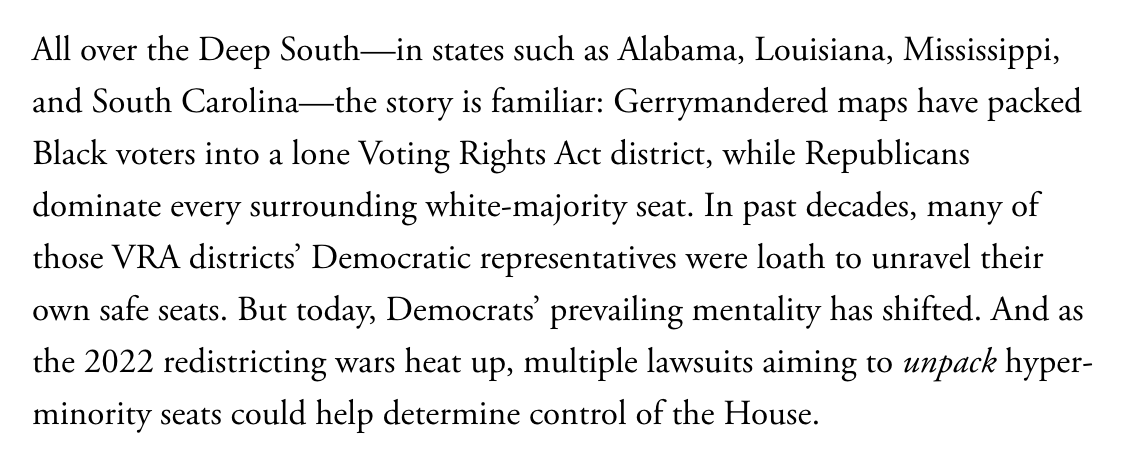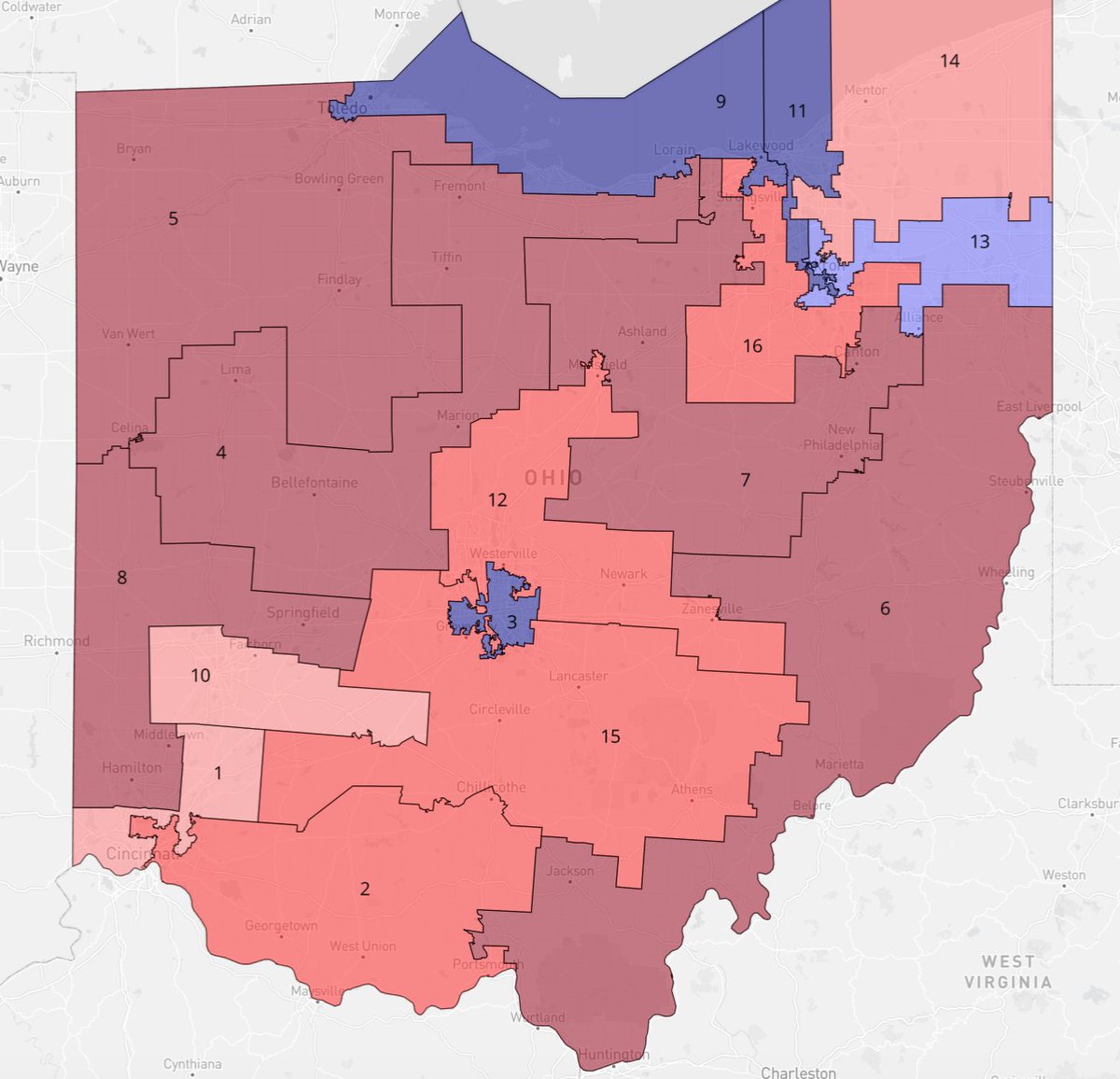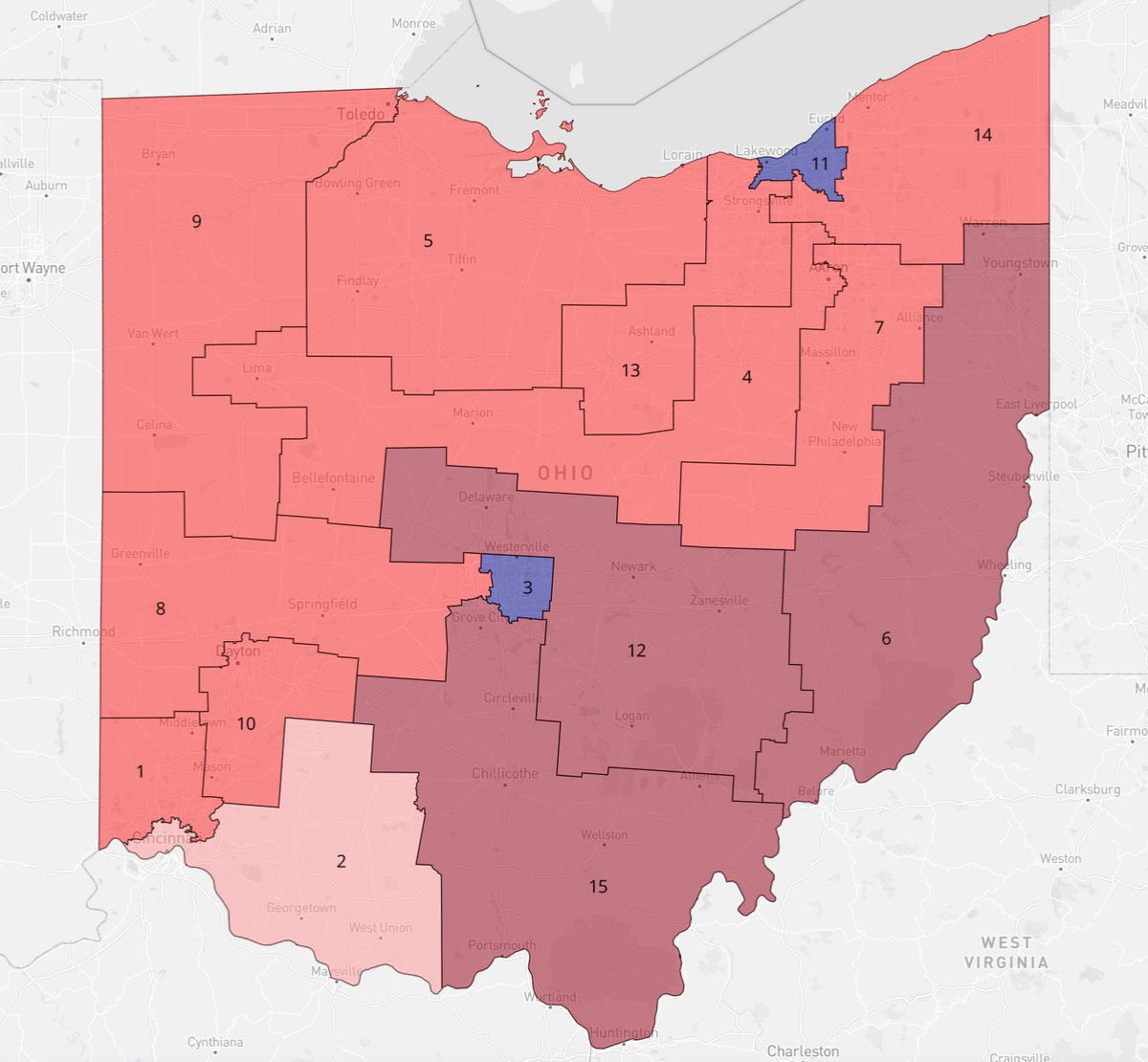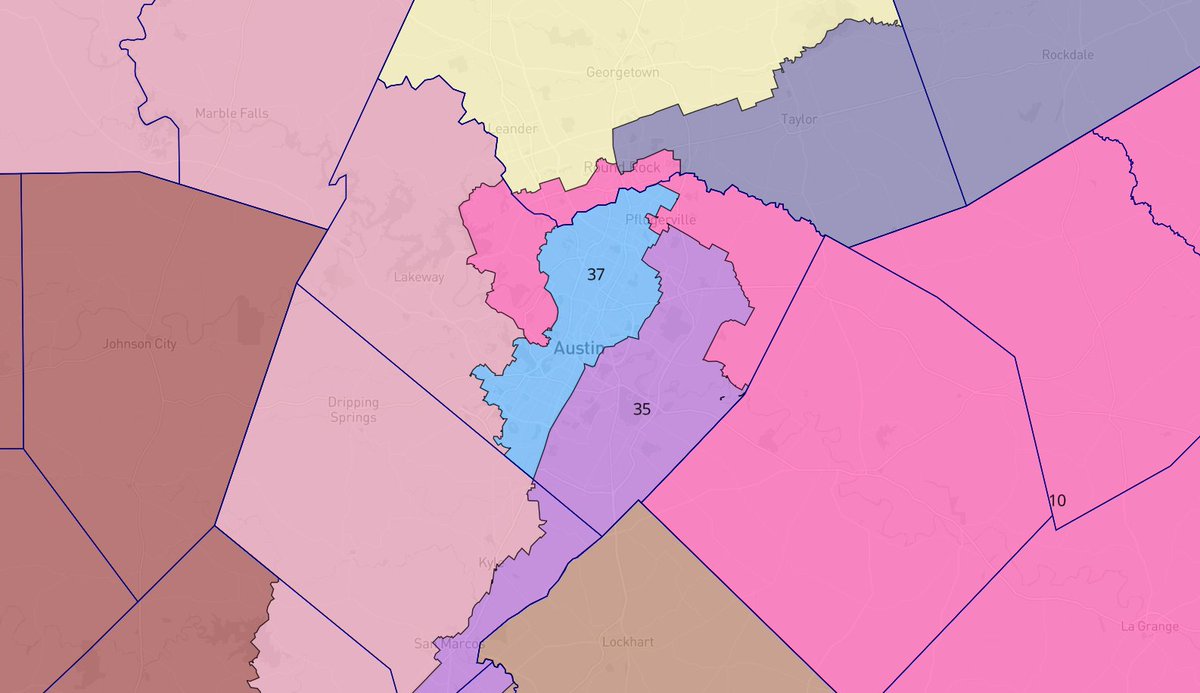
THREAD: I spent a lot of the summer interviewing Congressional Black Caucus members from the South. Almost without exception, they now favor legal action to *unpack* their own hyper-safe seats to create more minority opportunities. theatlantic.com/politics/archi… 

"We've only got one of six seats in a state that's a third Black," #LA02 Rep. Troy Carter (D) told me. "If Baton Rouge and Opelousas can be tied in for a second majority-minority district, I'm all in." theatlantic.com/politics/archi… 

"If we're a quarter of the population, we should be a quarter of the seats," #AL07 Rep. Terri Sewell told me. "I'm for broadening the representation of African-Americans across Alabama, instead of concentrating it in my district." theatlantic.com/politics/archi… 

"Some of our [CBC] members are beginning to rethink what the [Black] thresholds should be," said #NC01 Rep. G.K. Butterfield, whose old district (below) was unpacked by a racial redistricting lawsuit. theatlantic.com/politics/archi… 

"If I had drawn the lines, my district would not be 58% Black," #SC06 Rep. Jim Clyburn wrote in an op-ed. "I am hopeful that when redistricting is done after the 2020 Census, stacking and bleaching will not be the primary goals." theatlantic.com/politics/archi… 

"To suggest there is some numerical [50%] barrier that you have to achieve is absurd," said Rep. Bobby Scott, whose old #VA03 (below) was unpacked in 2016. "If the votes are changing, the standard ought to change." theatlantic.com/politics/archi… 

"I was never comfortable with all the packing," said Rep. Alma Adams (D), whose previous snakelike #NC12 (below) was struck down by courts in 2016. "I think it limits the participation we can have as African-Americans." theatlantic.com/politics/archi… 

Tbh, a big factor in this shift: over time, non-Black voters in the metro South (and beyond) have become more open to voting for Black candidates. Today, just 18 of the House's 53 @TheBlackCaucus members represent seats where Blacks are over 50% of the voting age population.
• • •
Missing some Tweet in this thread? You can try to
force a refresh

















